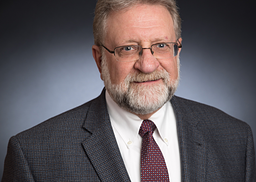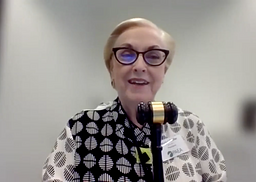Muma Becomes First PA to Serve as University President

Richard Muma, PhD, MPH, PA-C, became the first PA to be named president of a university when the Kansas Board of Regents announced his appointment as president of Wichita State University last week. Wichita State University is a Division I research university located in Wichita, Kansas. Muma served as interim president since September 2020 and now assumes the role officially, following a national search process.
He has held a number of positions at WSU since he joined the faculty of the PA program in 1994. He was director of their PA program from 2002–2008, when he began to rise through the ranks of university administration, first as chair of the Department of Public Health Sciences, then moving to the provost’s office as assistant provost and then provost in 2018. He has been a prolific researcher, contributing many articles to the Journal of Physician Assistant Education, and other journals over his career, and editing four books on HIV infection and patient education. He earned his PhD in 2004 from the University of St. Louis, Missouri.
Muma was drawn to education early in his career, becoming associate faculty just a year after his graduation from the University of Texas Medical Branch-Galveston PA Program in 1987. This was at the height of the HIV epidemic, and Muma, then working in infectious diseases, was invited to help develop HIV curriculum for a HRSA grant. In 1990, he became full-time faculty at UTMB, where he was mentored by then-Program Director Richard Rahr, a past president of the Association who passed away in 2019. In 1994 he joined the faculty at WSU, where he has remained ever since, with the exception of a two-year stint as director of the Saint Louis University PA Program, 1999–2000.
Muma sees his background as a PA and PA educator as a significant contributor to his success in higher education, and obvious parallels between health care and higher education. “My experiences as a PA and educator, and as a public health practitioner, have really helped shaped me as a higher education leader,” he said. “There are many parallels between higher education and health care. One obvious one is that patient outcomes are enhanced by patients being around people who are more like them; it is the same in higher education.”
His background in medicine and public health has also been an asset during the pandemic, Muma said. “We pulled together faculty from around the university to stand up a COVID testing lab within two months,” he recalled. “This helped businesses stay open and has been just phenomenal for the community.” Muma cites this experience as an example of the transformative potential of the urban public research university of which WSU is an example. “Our goal is to provide educational access and to help people in the community solve problems,” he said. “We know that if we are going to make an impact on our state we need to keep people here and help them live productive lives. Traditional education can be more exclusionary; we want to bring together the whole community.”
On becoming the first PA to be named a university president, Muma says, “I had no idea when I entered the profession that this is where I would end up. The skills and knowledge I picked up in the PA profession has been really useful to me in finding my way and helping others find their way.” He also recalls a piece of advice given to him by Rahr early in his career: “Any time there is a door open, go through it. Take advantage of all opportunities that come your way. I took that advice all throughout my career. I am grateful to the faculty who hired me back then, and I look forward to using my experience to help move a university forward.”




